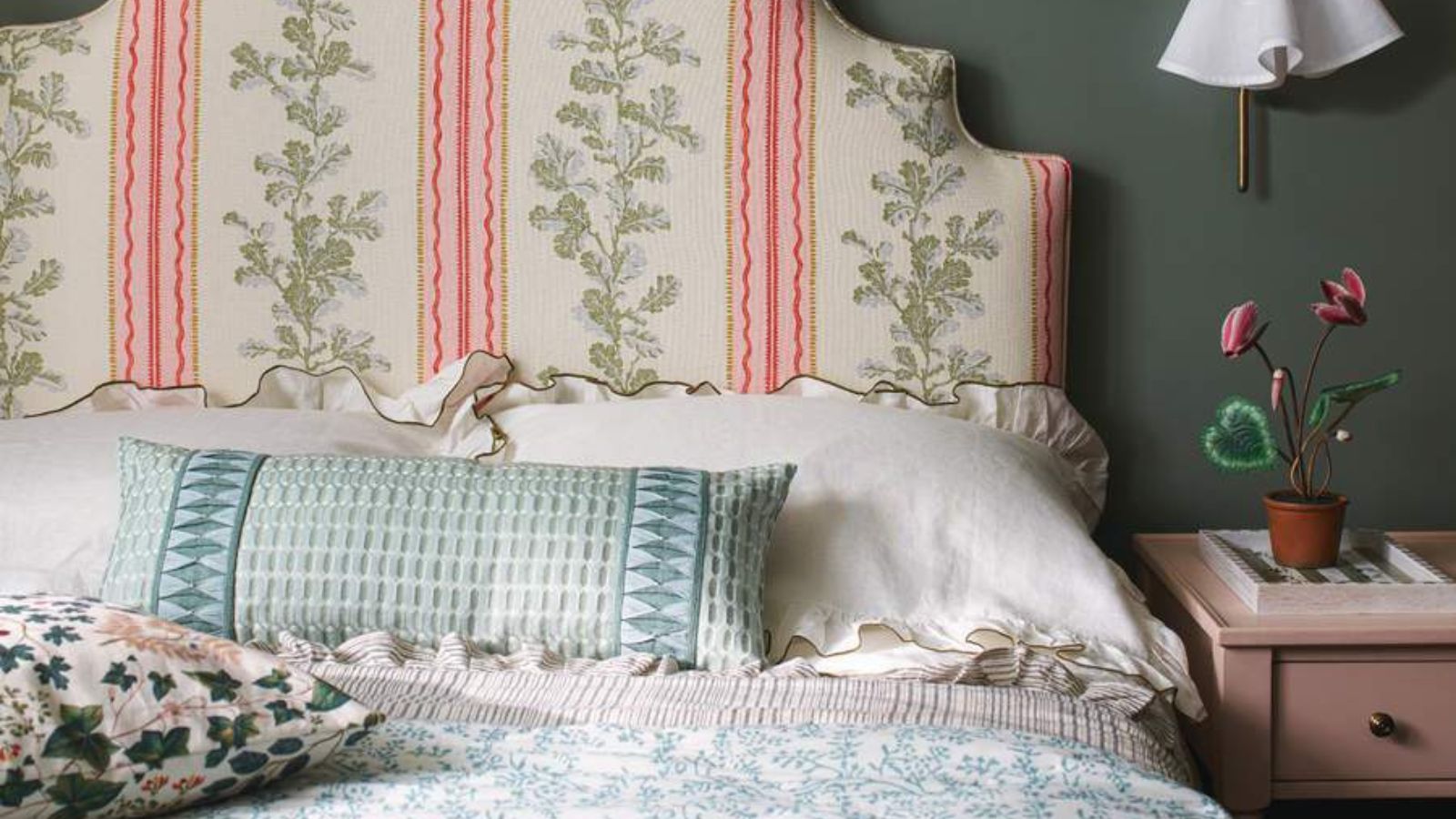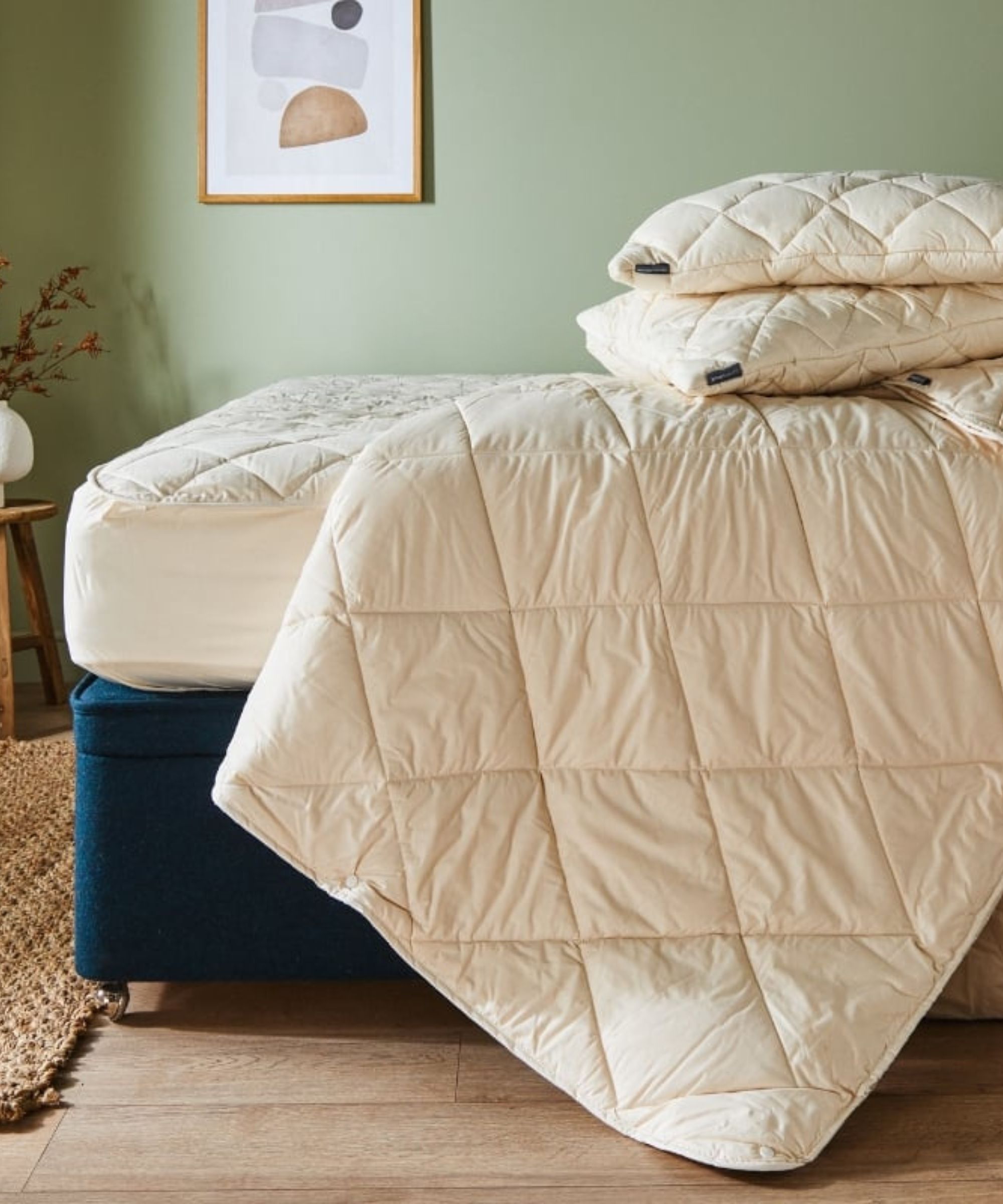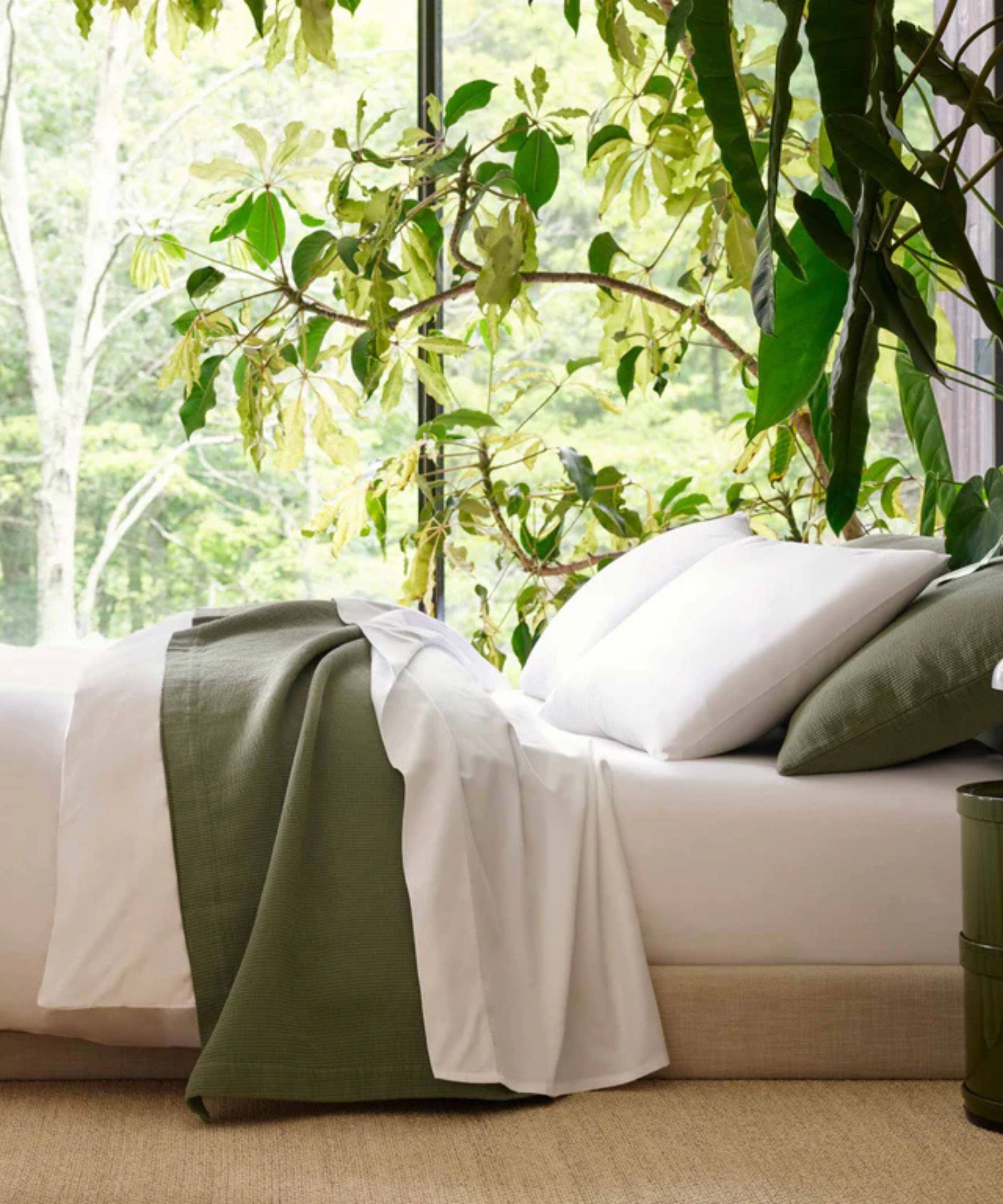
Wool vs down duvets: the debate rages on. Where wool lies thin and flat, down is light and fluffy. Feathers tend to trap heat and make great winter warmers, where wool is a natural thermoregulator. Which duvet type is best for you depends on a number of factors, including whether you run hot or cold and whether you live in a warm or cool climate.
As the resident Sleep Editor at Homes & Gardens, I lead a team of expert testers in the search to find the world's best duvet inserts. Together, we've tested everything from light and fluffy down duvets to moisture-wicking wool inserts. I've combed through our back catalog of reviews to bring you the best of both materials.
I've also asked an expert panel of bedding designers and sleep scientists to weigh in on the wool vs down duvet debate. We'll be hearing from Chris Tattersall at Woolroom (one of the best places to buy comforters) as well as two leading sleep scientists.
Wool vs down duvets – which is best?

It should come as no surprise that Chris Tattersall, Managing Director of Woolroom, is strongly in favor of wool duvets. Chris says that 'a wool duvet offers exceptional comfort thanks to wool’s natural breathability, temperature regulation and moisture managing abilities, keeping you cool in the summer, warm in the winter and dry all night long.' Wool is great for anyone who suffers from night sweats or hot flashes.
'In a study with the University of Leeds, commissioned by Woolroom, wool was found to boost your chances of a good night's sleep by 67% in comparison to feather and down alternatives,' Chris continues. 'Wool is also naturally hypoallergenic, making it resistant to pesky house dust mites and therefore perfect for those suffering from allergies.'
'Additionally, wool’s self-cleaning and antibacterial nature mean sunlight and fresh air will revitalise the fibres, with no need for additional washing, leading to a longer lifespan for your wool duvet,' says Chris.
That's good news, because wool is hard to wash: unless you take good care of it, the fibers may well clump together or shrink under the heat. If you do want to wash your wool duvet, I recommend you try a gentle cycle on a low heat, with a special wool detergent, such as the Heritage Park Silk & Wool Laundry Detergent, to preserve wool's natural protective oils.
'A truly sustainable option, wool is also the only truly biodegradable, fire-resistant and renewable bedding fiber, found in some of the best organic bedding,' says Chris.
I first tried a wool duvet on the Woolroom Sleep Retreat. Where down is light and fluffy, wool lies thin and flat inside a duvet cover, so it doesn't make such a beautiful bedspread, but I was highly impressed by the natural thermoregulation. Wool helps to keep my night sweats under control, which is especially important as we head towards warmer weather.
This is one of the best cooling comforters for anyone who suffers from night sweats. I first tried the Organic Washable Wool Comforter on a sleep retreat and it's become my go-to for hot nights and heat waves.
Piglet in Bed is one of the best places to buy bedding for eco-conscious shoppers. The wool is humanely sourced from Merino sheep in Europe and the cotton case is OEKO-TEX certified organic.
This comforter boasts a 4.8 average star rating from 1203 verified reviews. 'Compared to a down comforter, this feels thinner but heavier,' reads one recent review. 'The weight actually feels really nice and it's still super breathable.'

I tend to recommend wool duvets for hot sleepers, but the best warm comforters are filled with down. If you tend to run cold, or you live in a cooler climate, then you'd be better off with a down duvet.
'Since down is a natural material, it is breathable yet insulating, which helps maintain a comfortable sleeping temperature,' says Dr. Emma Lin, Sleep Medicine Physician at ReadyO2. 'The natural loft of down creates an airy and lightweight feel, which also makes for a nice, puffy bedspread.'
Dr. Roger Washington is also a big fan of a down duvet. 'Down is renowned for its exceptional loft and softness. It provides a luxurious, cloud-like feel that many people find comforting and cozy.'
However, he cautions that 'down can harbor dust mites and may not be suitable for people with allergies or asthma unless specifically treated to be hypoallergenic.
'Also, down tends to absorb moisture, leading to clumping and loss of insulating power if not properly cared for or aired regularly,' warns Dr Roger. It's worth learning how to wash a comforter at home for hygienic sleep. You could try airing your duvet outdoors for a quick freshen-up.
This comforter features in almost every one of our bedding buying guides: it's a real crowd-pleaser. The Brooklinen Down Comforter is available in Lightweight, All-Season, and Ultra-Warm to suit every kind of climate.
This is our reigning champion for the title of 'best duvet insert'. The down inside is certified by the IDS (International Down Standard), ensuring ethical practice from farm to factory.
'This down duvet insert is so soft and the loft is great,' reads one recent review. 'Warm enough in the winter and doable in the summer with the AC. (I can’t sleep without my comforter!) My kids love how it feels so much they asked for their own for Christmas!'
Meet the experts
Whether you opt for a wool or a down duvet, you're choosing natural fibers for better breathability. Now, it's time to turn your attention to the rest of your sleep set-up. The best organic mattress could enhance breathability throughout your bed: I've ranked and reviewed six of my favorite non-toxic options.







